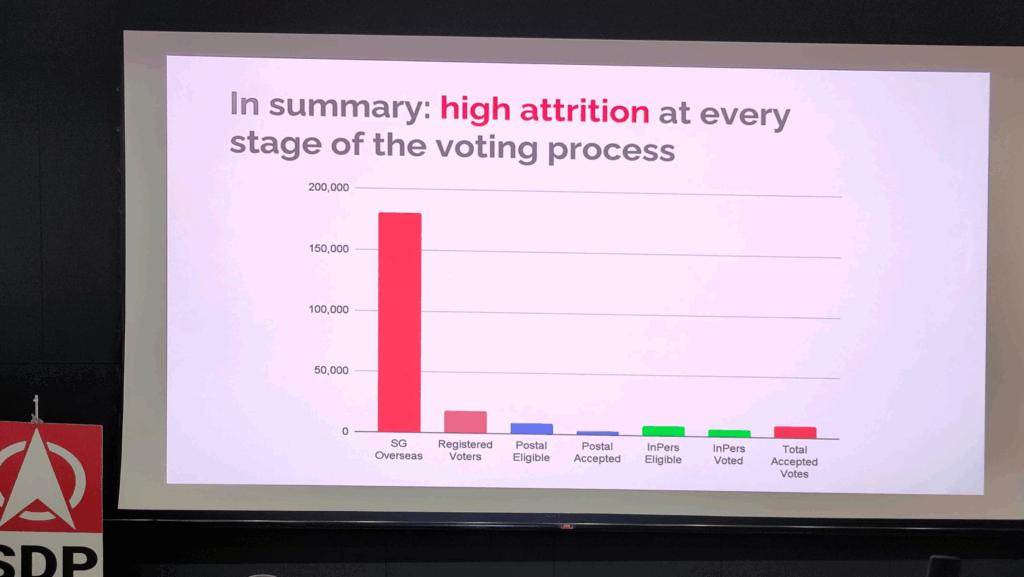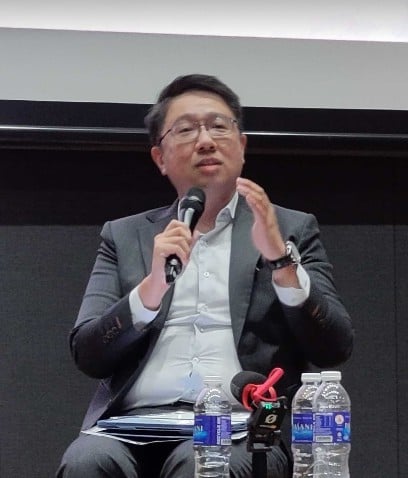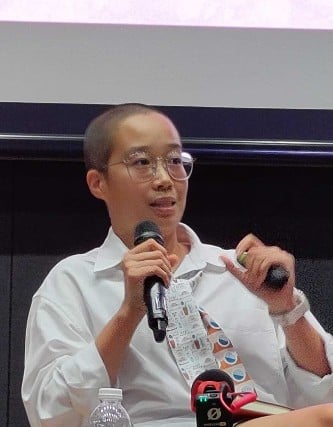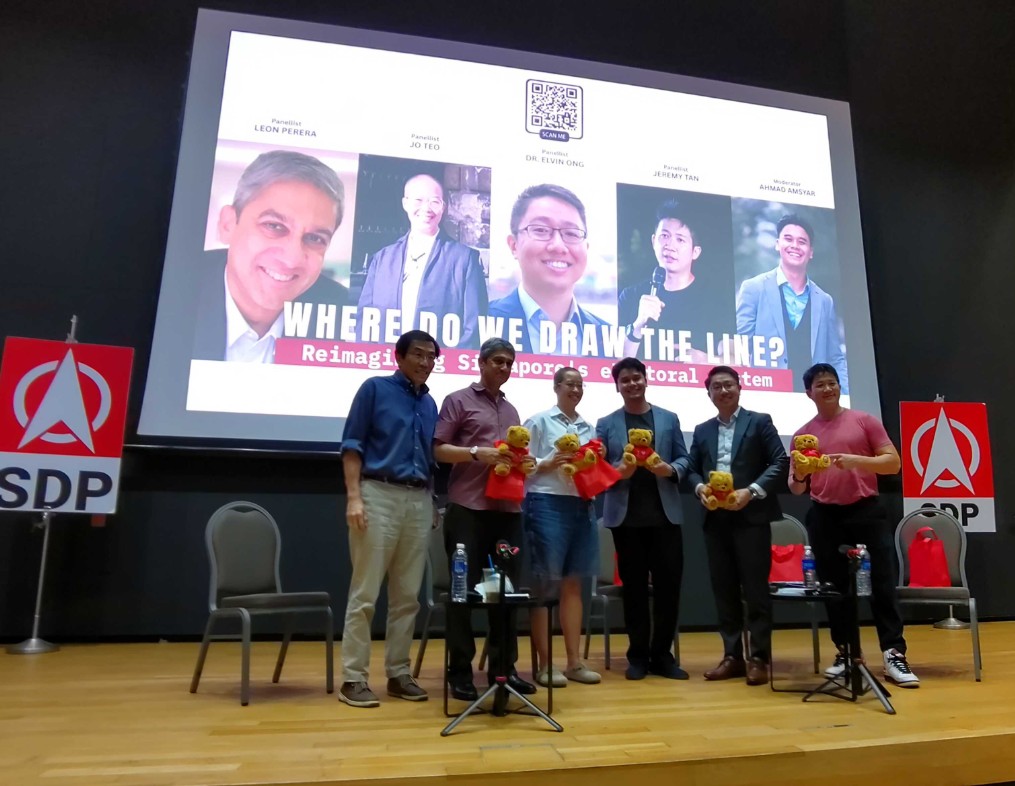The Singapore Democratic Party (SDP) launched a major new reform initiative on 23 August 2025 with the forum Where Do We Draw the Line? at Marina One, marking the formal rollout of Project Reform under its Renew Rebuild Reignite: Roadmap2030 strategic plan.
The forum, which attracted an audience of 340 attendees, served as a platform for the SDP to unveil its six-point proposal for overhauling Singapore’s electoral system.
It also brought together former and prospective political candidates, political scientists, and civic advocates to interrogate longstanding structural issues within the country’s electoral framework.
Opening the event, Central Executive Committee member James Gomez delivered a keynote address, framing the discussion around the enduring themes of fairness, transparency, and equal representation.
Dr Gomez credited the resilience of the volunteer team and project organisers, who successfully relocated the forum to Marina One after the abrupt closure of the original venue, The Projector, just four days before the event.
In his speech, Gomez underscored the importance of principle-driven reform:
“This push must be rooted in what should be, not in what is merely possible,” he said.
“We press for reform not because we are promised immediate results, but because it is the right thing to do”.
He then laid out Project Reform’s six key proposals:
- Remove the Elections Department from the Prime Minister’s Office.
- End gerrymandering by reforming the Electoral Boundaries Review Committee.
- Abolish the Group Representation Constituency (GRC) system.
- Mandate a minimum three-week campaign period.
- Require at least six months between boundary changes and dissolution of Parliament.
- Review the Newspaper and Printing Presses Act to enable independent media.
These reforms, he asserted, are necessary to align Singapore’s electoral processes with international democratic norms. Gomez also noted that an ongoing petition supporting these proposals had garnered nearly 6,000 signatures at the time of the event.
Deep concerns raised over overseas voting
The panel sessions began with a presentation by Angela Faye Oon, who addressed the limitations faced by Singaporeans voting from abroad.
Despite more than 180,000 overseas Singaporeans being eligible to vote in the 2025 General Election, only 9,329 ballots were counted.
Oon attributed this disparity to a combination of barriers, including stringent re-registration procedures and the fragility of postal voting systems.
Nearly half of postal ballots were rejected due to late or illegible postmarks, raising concerns about disenfranchisement among the overseas electorate.

Political scientists and civil society warn of democratic stagnation
Dr Elvin Ong, a political scientist, delivered a sobering analysis of the limitations facing reform movements in Singapore.
He described the current campaign as the fourth wave of reform advocacy in Singapore’s modern political history, and said that successful reform hinges on political will among those in power.

Dr Elvin Ong
“We face weak historical precedent, audience polarisation, and systemic implementation challenges,” Ong stated, emphasising that without commitment from elected lawmakers, change is unlikely to materialise.
Ong’s remarks were echoed by other panellists, including independent candidate Jeremy Tan, who drew attention to structural imbalances between the ruling party and opposition players.
“MPs have a duty to hold public agencies accountable, not act as their intermediaries,” said Tan, arguing that constituents deserve representation that challenges state institutions when standards are not met.
Representation inequities and electoral boundaries under scrutiny
Joleen Teo, a mathematical and theoretical physicist by training, focused on the uneven weight of votes across constituencies, a result of disproportionate voter-to-MP ratios.
Teo, who committed to democratising politics in Singapore through public education, questioned whether a voter in one constituency effectively has more electoral influence than another, due to how boundaries are drawn.

Joleen Teo
Panellists discussed whether smaller GRCs could preserve minority representation while improving accountability and competitiveness.
The discussion was given added urgency by the experience of SDP Secretary-General Chee Soon Juan, who was compelled to contest in Sembawang West SMC during the 2025 General Election after Bukit Batok SMC—where he had spent nine years cultivating community ties—was absorbed into a neighbouring Group Representation Constituency (GRC).
This development underscored concerns that boundary changes can undermine continuity of representation and disadvantage opposition candidates who have invested long-term effort in their constituencies.
Call for broad-based civic engagement
Several speakers stressed the urgency of engaging the “middleground”—voters not strongly aligned to any party—by providing clear, accessible civic education. The lack of public understanding of electoral mechanics and policy impact, panellists argued, has created a democratic deficit in Singapore’s political discourse.
Former Member of Parliament Leon Perera made an emphatic call for broader participation in electoral reform efforts:
“It’s every citizen’s business to push for an electoral system that is fair to the non-governing parties,” he said. “Failing to do this insulates the government of the day from healthy competition, accountability and scrutiny”.
Chee Soon Juan calls for sustained public pressure
In his closing remarks, Dr Chee reiterated the SDP’s belief that electoral reform is essential to a functioning democracy.
He urged attendees to sign the party’s petition and to help grow a grassroots movement capable of applying sustained pressure on decision-makers.
“We are reaffirming our commitment to electoral reform because a just and democratic society cannot be built on an unfair political process,” said Chee.
He added that the SDP’s long-term strategy seeks to activate civic participation, both online and on the ground.

The event marked a renewed chapter in the SDP’s reformist platform and represented one of the party’s most comprehensive engagements on electoral issues to date.
The launch of Project Reform signalled not only a policy campaign, but also an appeal for public mobilisation around principles of democratic fairness.
The post SDP launches Project Reform with landmark forum calling for urgent overhaul of electoral system appeared first on The Online Citizen.


